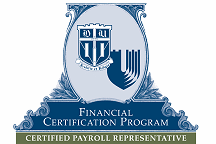
- Apply the payroll schedules to department business processes to ensure transactions meet deadlines for the exempt and nonexempt payrolls and the non-compensatory payment system.
- Apply the fundamentals of the Payroll Structure as the foundation of position management within SAP.
- Understand key terminology in order to better communicate payroll information within the department and between the department and corporate functions.
- Apply General Ledger accounting to payroll expenses.
- Use iForms to process a variety of payroll master data transactions including the following:
- Hiring
- Cost Distribution Changes
- Secondary Positions
- Personal Data Changes
- Transfers
- Rate and Schedule Changes
- Position Reclassifications
- Terminations
- Understand and apply the process for hiring secondary employees.*
- Understand basic guidelines for work study recipients and parameters for issuing payments.*
- Understand purpose and procedures for the different methods of issuing payments to nonexempt employees:
- Time reports submitted through MyTime in Duke@Work
- The Time and Attendance System
- Gross adjustments
- Understand purpose and procedures for the different methods of issuing payments and tracking time away from work for exempt employees:
- Supplemental Payments
- Pay Exceptions
- Exempt Time Reporting for time away from Duke
- Use a variety of reports to better understand payroll expenses for both exempt and nonexempt employees.
- Understand the source of fringe benefit charges, how rates are applied, as well as the purpose of different fringe rates.
- Manage overtime costs through the use of the Biweekly Overtime Report.
- Maintain current understanding of new payroll processes, procedures, and Duke or governmental compliance requirements.
- Serve as the liaison between the department and Corporate Payroll Services.
- Understand the payroll policies and procedures that support Time and Attendance, how to interpret a time report in Time and Attendance, reports available through Time and Attendance, and how to request changes to system parameters in Time and Attendance.*
- Differentiate between compensatory and non-compensatory individuals and the process and parameters for processing payments for non-compensatory recipients.*
- Support departmental efforts to issue payments to Foreign Nationals while ensuring the department complies with immigration and tax regulations protecting both the institution and the individual employee.
- Discuss and review tools designed to help departments determine if an individual should be an employee or an independent contractor.
- Employee vs. Independent Contractor Determination Matrix
- The Independent Contractor Checklist
- The Short-Term Hire Matrix
*In-depth understanding of these skills is acquired through completion of elective courses. An individual completing certification must have at least two electives to receive his/her certificate.
This certification does not provide a recipient with the following:
- Detailed understanding of Duke University or DUHS’ pay policies.
- Detailed understanding Duke University or DUHS’ compliance requirements.
- With the exception of iForms, hands-on training with any Duke University or DUHS system.